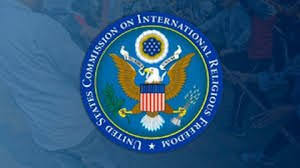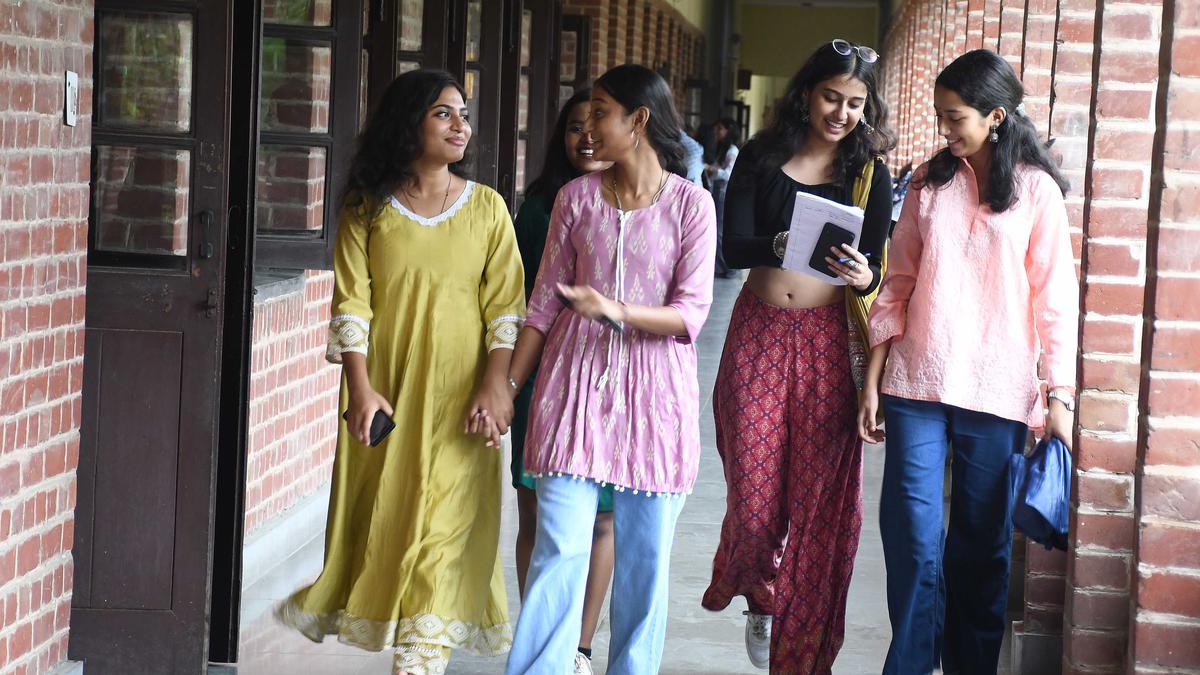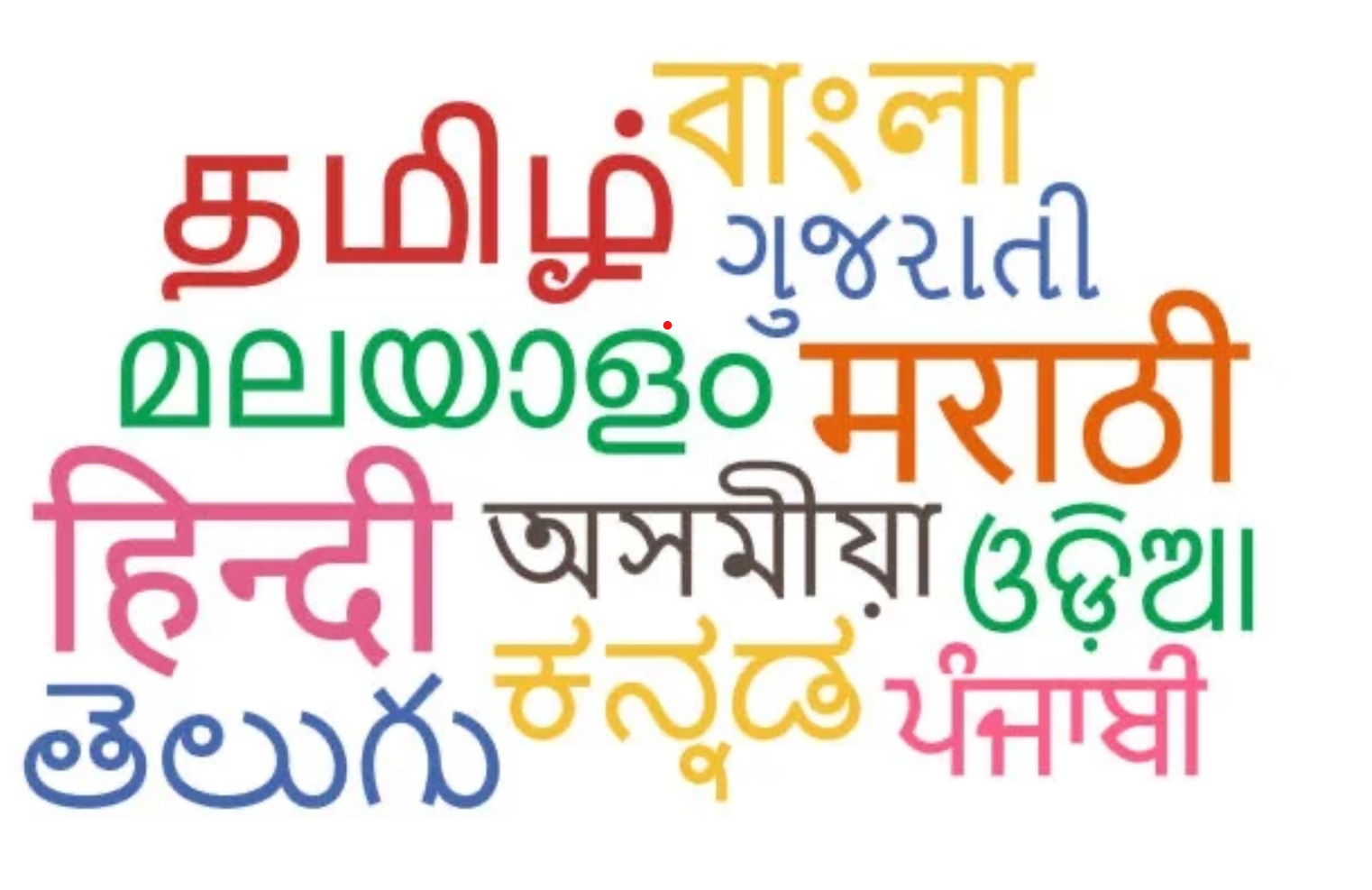USCIRF Report on India: Key Highlights

- 04 Oct 2024
In News:
The United States Commission on International Religious Freedom (USCIRF), a Washington DC-based bipartisan U.S. federal government agency, has released a country update on India, flagging “collapsing religious freedom conditions”.
- Agency Overview:
- The United States Commission on International Religious Freedom (USCIRF) is an independent, bipartisan U.S. federal commission established under the 1998 International Religious Freedom Act (IRFA).
- Its primary functions include reviewing global religious freedom violations, providing policy recommendations to U.S. leaders, and publishing annual reports.
- Current Concerns:
- USCIRF's latest report indicates a “collapse” in religious freedom conditions in India, particularly worsening throughout 2024, especially around national elections.
- Legal and Policy Changes:
- Strengthening of discriminatory legislation, including:
- State-level anti-conversion and anti-terrorism laws.
- Implementation rules for the 2019 Citizenship (Amendment) Act (CAA).
- Passage of a State-level Uniform Civil Code (UCC) Bill in Uttarakhand.
- Strengthening of discriminatory legislation, including:
- Violations and Incidents:
- Expropriation of Places of Worship:
- Authorities have facilitated the construction of Hindu temples on former mosque sites.
- Increased attacks on religious minorities, particularly following the consecration of the Ayodhya temple in January 2024.
- Targeting of Religious Minorities:
- Arrests of Christians accused of forced conversions under anti-conversion laws.
- Anti-cow slaughter laws exploited by vigilante groups to target Muslims, Christians, and Dalits, often with little to no legal repercussions for perpetrators.
- Expropriation of Places of Worship:
- Recommendations:
- USCIRF urges the U.S. State Department to designate India as a “Country of Particular Concern” due to severe violations of religious freedom.
About USCIRF
- Composition: Comprised of nine commissioners appointed by the U.S. President or Congressional leaders, supported by non-partisan staff.
- Objective: To monitor and recommend actions on religious freedom violations aligned with international human rights standards.
Indian push needed to end AIDS as a global health threat by 2030: UNAIDS

- 04 Oct 2024
In News:
The UNAIDS Director recently highlighted the crucial role India plays in the global fight against HIV/AIDS, asserting that without its significant contributions, achieving the Sustainable Development Goal of ending AIDS as a public health threat by 2030 is unlikely.
Understanding HIV/AIDS
- HIV (Human Immunodeficiency Virus) is a virus that attacks the immune system, specifically targeting CD4 cells, which diminishes the body's ability to combat infections and diseases.
- When HIV progresses to its most severe form, it is diagnosed as AIDS (Acquired Immunodeficiency Syndrome), characterized by a severely compromised immune system, leading to life-threatening infections and cancers.
- The virus is transmitted through contact with infected bodily fluids, including blood, semen, and breast milk. While there is currently no cure, antiretroviral therapy (ART) can effectively manage HIV and prevent its progression to AIDS.
India’s Progress in Combating HIV/AIDS
- From 2010 to 2023, India has made significant strides in reducing annual new HIV infections by 44%, surpassing the global average.
- Additionally, AIDS-related deaths in India have decreased by nearly 80% during the same period, also exceeding global trends. However, challenges persist, with approximately 68,000 new infections reported in 2023, translating to around 185 daily.
- The Global AIDS Strategy emphasizes the need for 80% of prevention services to be delivered by community-led organizations, which are essential for reaching key populations but require sufficient resources and support.
About UNAIDS
UNAIDS, established in 1996, coordinates global efforts to combat HIV/AIDS and supports those affected. Headquartered in Geneva, Switzerland, it unites the efforts of 11 UN organizations and works in collaboration with various global and national partners to end the AIDS epidemic by 2030.
Key aspects of UNAIDS include:
- Global Mandate: To coordinate responses, support countries in prevention and treatment, and advocate for human rights and equality in access to services.
- Targets: The "90-90-90" targets aimed for 2020 sought to ensure that 90% of people living with HIV were diagnosed, 90% of those diagnosed were on treatment, and 90% of those on treatment achieved viral suppression.
- Current Strategy: The 2021-2026 Global AIDS Strategy focuses on eliminating inequalities that drive HIV and aims to ensure that 30 million people are on treatment by 2025.
- Funding and Advocacy: Funded by governments, private foundations, and corporations, UNAIDS organizes key campaigns, including World AIDS Day, to raise awareness and promote advocacy.
PM Internship Scheme

- 04 Oct 2024
In News:
The Prime Minister’s Internship Scheme, announced by Union Finance Minister Nirmala Sitharaman during her Budget speech on July 23, was launched on October 3. The PM Internship Scheme aims to provide internship opportunities to one crore youth in the top 500 companies over the next five years.
Companies will upload their internship positions, and candidates can submit applications starting October 12.
What is the Prime Minister’s Internship Scheme?
The PM Internship Scheme will enhance youth employability in India by offering them hands-on exposure to real-world business environments. The scheme represents a transformative opportunity to bridge the skills gap and drive sustainable growth in India.
A monthly stipend of ?4,500 will be provided to the interns from the central government via DBT (Direct Benefit transfer), with an additional ?500 offset provided by the company’s CSR fund.
Who is eligible for the PM internship scheme?
- Candidates aged between 21 and 24 years who are not engaged in full-time employment are eligible for the one-year internship programme.
- Internships are available to those who have passed class 10 or higher.
- Individuals from families with government jobs are excluded
- The scheme is not open to post-graduates
- A candidate who graduated from premier institutes such as IIT, IIM, or IISER, and those who have CA, or CMA qualification would not be eligible to apply for this internship.
- Anyone from a household that includes a person who earned an income of ?8 lakh or more in 2023-24, will not be eligible.
How to apply for the PM internship scheme?
- Interns can register in the portal and apply for internships. The portal, pminternship.mca.gov.in, is likely to be opened up for youngsters to enroll for consideration by companies on October 12. This window will be open till October 25 for the first batch of internships. Candidates must share and self-certify some data about their educational qualifications and residential pin codes.
- Candidates’ data will be matched with companies’ needs and locations using Artificial Intelligence tools, and a shortlist of candidates will then be generated for companies to consider.
- The portal is designed to streamline the application process and make candidate selection more transparent. Applicants can check the status of their applications in the portal once they have applied to the available posts.
What is the benefit of the scheme?
The scheme is to provide on-job training to youth and an exposure to real-life work environment. The scheme will also benefit the industry by creating a pipeline of skilled, work-ready youth who can be employed post-internship both in large as well as micro, small and medium enterprise.
National Mission on Edible Oils – Oilseeds (NMEO-Oilseeds)

- 04 Oct 2024
In News:
Cabinet Approves National Mission on Edible Oils – Oilseeds (NMEO-Oilseeds) (2024-25 to 2030-31).
Objective:
- Achieve self-reliance in edible oil production in seven years.
Financial Outlay:
- ?10,103 crore for the mission period.
Key Goals:
- Increase primary oilseed production from 39 million tonnes (2022-23) to 69.7 million tonnes by 2030-31.
- Boost domestic edible oil production to 25.45 million tonnes, meeting 72% of projected requirements.
Focus Areas:
- Enhance production of key oilseed crops: Rapeseed-Mustard, Groundnut, Soybean, Sunflower, Sesamum.
- Improve extraction efficiency from secondary sources (e.g., Cottonseed, Rice Bran).
Strategies:
- Promote high-yielding, high oil content seed varieties.
- Extend cultivation to rice fallow areas and encourage intercropping.
- Use advanced technologies like genome editing for seed development.
SATHI Portal:
- Launch of an online 5-year rolling seed plan for timely seed availability.
- Coordination with cooperatives, Farmer Producer Organizations (FPOs), and seed corporations.
Infrastructure Development:
- Establish 65 new seed hubs and 50 seed storage units.
- Develop over 600 Value Chain Clusters across 347 districts, covering over 1 million hectares annually.
Support for Farmers:
- Access to high-quality seeds, training on Good Agricultural Practices (GAP), and pest management advisory.
Environmental Benefits:
- Promote low water usage, improve soil health, and utilize crop fallow areas.
Background Context:
- India relies on imports for 57% of its edible oil demand.
- Previous initiatives include the National Mission on Edible Oils – Oil Palm (NMEO-OP) and significant increases in Minimum Support Price (MSP) for oilseeds.
- Imposition of 20% import duty on edible oils to protect local producers.
The NMEO-Oilseeds mission aims to enhance domestic oilseed production, reduce import dependency, and improve farmers' incomes while contributing to environmental sustainability.
Status of Classical Language: An Explainer

- 04 Oct 2024
In News:
The Union Cabinet has approved to confer the status of Classical Language to Marathi, Pali, Prakrit, Assamese and Bengali languages.
Why is a language declared as Classical?
Designating a language as classical acknowledges its historical significance and its role in preserving Bharat’s rich cultural heritage. These languages have been crucial in transmitting ancient knowledge, philosophies, and values for millennia. Government recognition emphasizes their deep antiquity and literary traditions, enhancing their status and promoting efforts for their preservation and research, ensuring their relevance in the modern world.
What are the criteria for declaring a language as classical?
In 2004, the Government of India, for the first time, created a new category of languages known as Classical Languages. It set the following as criteria for the status of Classical Language:
- High antiquity of its early texts/ recorded history over a thousand years.
- A body of ancient literature/ texts, which is considered a valuable heritage by generation of speakers.
- The literary tradition must be original and not borrowed from another speech community.
This criterion was revised in 2005 and 2024 based on the recommendations of Linguistic Experts Committees (LEC) under Sahitya Akademi to examine the proposed languages for the status of Classical Language. Later the criteria were revised in 2024 as follows:
- High antiquity of its early texts/recorded history over a period of 1500- 2000 years.
- A body of ancient literature/texts, which is considered a heritage by generations of speakers.
- Knowledge texts, especially prose texts in addition to poetry, epigraphical and inscriptional evidence.
- The Classical Languages and literature could be distinct from its current form or could be discontinuous with later forms of its offshoots.
The 2024 Linguistic Expert Committee also recommended the following languages to be fulfilling revised criteria to be considered as a Classical Language: Marathi, Pali, Prakrit, Assamese, Bengali
How many languages have been declared classical so far?
Languages Date of Recognition Notification by Source/Notification Date
Tamil October 12, 2004 Ministry of Home Affairs October 12, 2004
Ministry of Sanskrit November 25, 2005 Ministry of Home Affairs November 25, 2005
Telugu October 31, 2008 Ministry of Culture October 31, 2008
Kannada October 31, 2008 Ministry of Culture October 31, 2008
Malayalam August 8, 2013 Ministry of Culture August 8, 2013
Odia March 1, 2014 Ministry of Culture March 1, 2014
Steps Taken by the Ministry of Education for Advancing Classical Languages:
- Establishment of Central Universities (2020): Three universities created to promote Sanskrit through an Act of Parliament.
- Central Institute of Classical Tamil:
- Facilitates translation of ancient Tamil texts.
- Promotes research and offers courses for students and scholars.
- Centres for Excellence:
- Established for Classical Kannada, Telugu, Malayalam, and Odia under the Central Institute of Indian Languages in Mysuru.
- Awards: Introduction of national and international awards to recognize achievements in Classical Languages.
- Additional Benefits:
- National Awards for Classical Languages.
- Establishment of university chairs.
- Dedicated centers for promoting Classical Languages.
